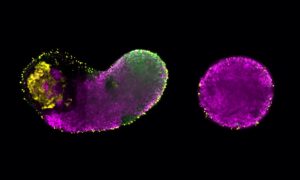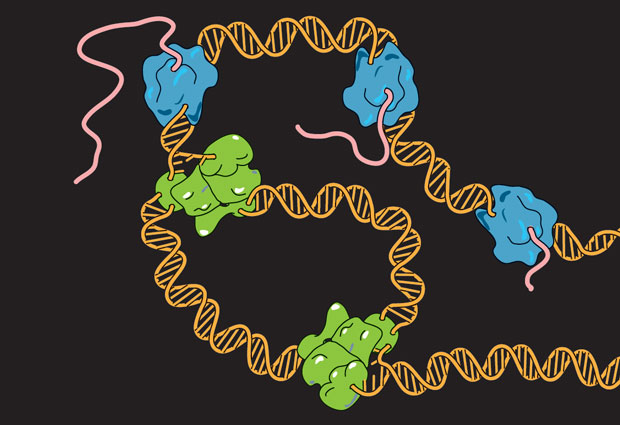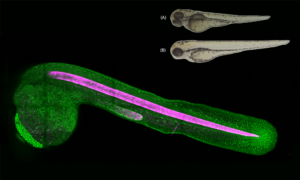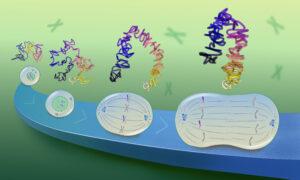
DNA replication stress in cancer
Understanding why the DNA copying process is disrupted in cancer cells

Ahead of the EMBO/EMBL Symposium DNA Replication: From Basic Biology to Disease, co-organiser Thanos Halazonetis outlines what participants can expect from the symposium (7-10 May), and discusses his research on the significance of DNA replication stress in cancer.
What can participants expect from the upcoming EMBO/EMBL Symposium, DNA Replication: From Basic Biology to Disease? Why should they attend?
My co-organisers Michelle Debatisse and John Diffley have invited many of the experts in the field. The latest fundamental biology advances will be presented, as well as advances relating to DNA replication stress and its role in cancer and other diseases. Attending the symposium will allow participants to catch up with this rapidly developing field. I’m hopeful that many scientists from pharmaceutical companies will also attend, as there are clear opportunities for identifying and exploiting new drug targets.
Can you briefly explain DNA replication stress?
When DNA is copied, the DNA double helix gets separated into its two constituent strands, creating a branching structure called the replication fork. The site where replication begins is typically in the middle of a DNA strand, giving rise to two replication forks that move in opposite directions as the DNA is copied. The forks move smoothly along the DNA, at more or less constant speed, until they reach the end of the region being copied. In cancer, replication forks often collide with the cell’s DNA transcription machinery, stopping replication and causing damage to the forks and breaks to the DNA strands. This is what we mean by DNA replication stress. Replication can only resume after specialised proteins have repaired the damaged forks.
What encouraged you to study this process?
DNA replication stress is a defining feature of cancer in the sense that most cancer cells have it, while it is absent in normal cells – even when they’re dividing rapidly. We knew that oncogenes – genes that have a role in causing cancer – induce DNA replication stress in cancer cells, but we were interested in gaining insights into the molecular mechanisms behind this.
Why is this research important?
It’s given us a better understanding of why DNA replication stress is seen in cancer cells. This opens up the possibility of developing new cancer therapies: we could find ways to maximise the damage caused by DNA replication stress in cancer cells, which would either stop the cells from dividing or result in cell death. We could do this, for example, by inhibiting the proteins that stabilise replication forks after they collide with the transcription machinery.
How can high-throughput technologies help in this area of research?
High-throughput technologies allow us to study DNA replication in ways that were not previously possible. We can observe the start of DNA replication and progression of the replication forks over time at every position in the genome. Without these technologies it would not have been possible to gain this understanding of why cancer cells show DNA replication stress.
What are the implications for cancer research and therapies?
Of course, the long-term goal of cancer research is to develop novel therapies. The presence of DNA replication stress in cancer cells offers the possibility of developing therapies that target cancer cells specifically, without affecting healthy cells. Our methods will hopefully offer insights to guide the identification of new drug targets and the development of therapeutic compounds.
What are your hopes for the future of this field?
Progress in the study of DNA replication has been phenomenal in the past few years. It’s now possible to perform essentially all the steps of DNA replication in vitro using purified components; three-dimensional structures of many cellular components involved in replication have been generated; and great insights have been obtained from analysis of DNA replication in cells and in vivo. Beyond understanding the basic principles of DNA replication, I anticipate that progress in the field will allow the development of novel cancer therapies with low toxicity. That’s something I’m very optimistic about.
For more information about the symposium and to register, click here. Registration closes 26 March 2018.


